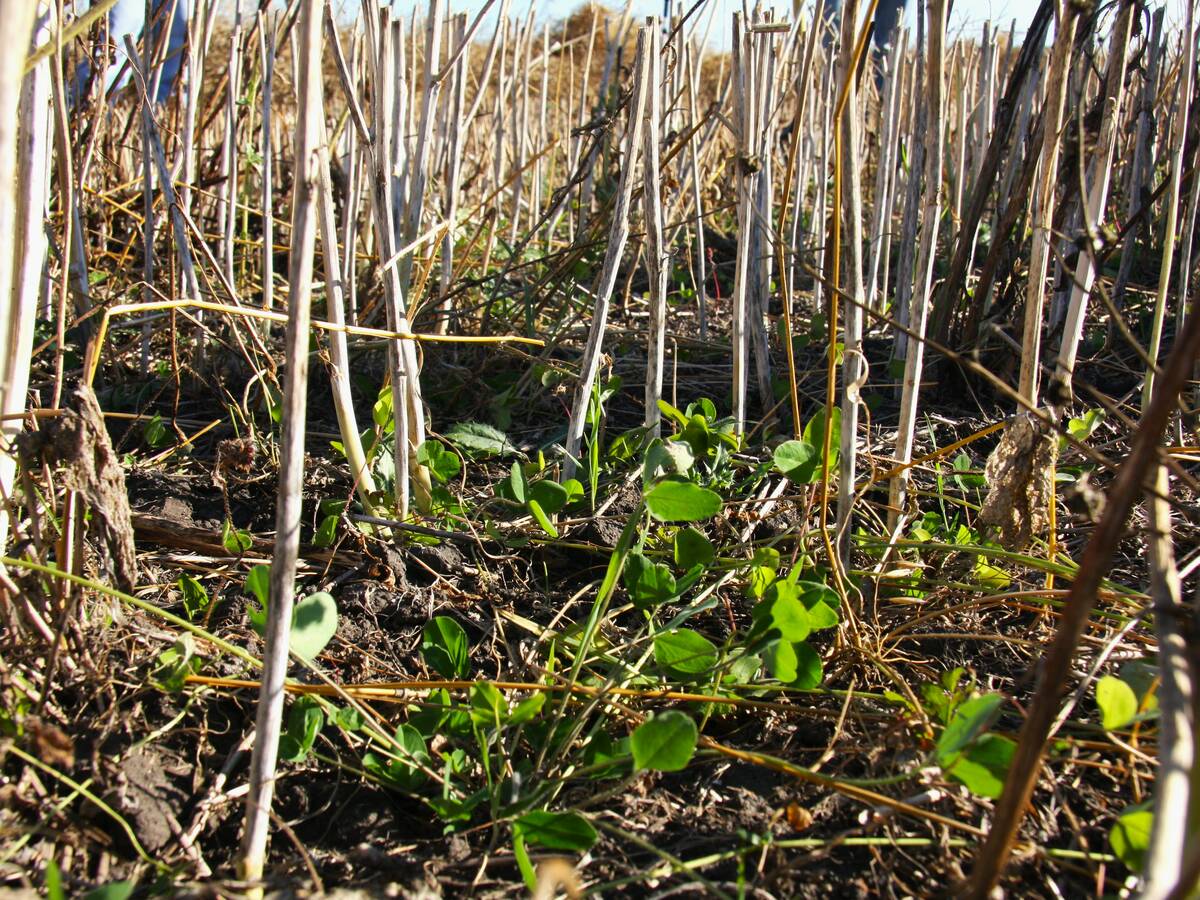The U.S. Environmental Protection Agency’s decision to register Enlist Duo, a herbicide containing glyphosate and a new version of 2,4-D, provoked a hostile response from environmental groups. Opponents link 2,4-D to a number of ailments, including non-Hodgkin’s lymphoma and birth defects.
Dow’s Enlist technology is now fully approved in the United States, but the company must still overcome roadblocks to fully commercialize corn and soybeans with stacked herbicide tolerance.
The U.S. approval means a substantial number of corn and soybean farmers in Canada and the U.S. will grow crops with herbicide tolerance for glyphosate and 2,4-D next spring.
“We see this as a huge opportunity, globally, because of the issues with hard-to-control and resistant weeds in corn and soybeans,” said Jeff Loessin, portfolio marketing leader for Dow AgroSciences Canada.
Read Also

Saskatchewan project sees intercrop, cover crop benefit
An Indigenous-led Living Lab has been researching regenerative techniques is encouraging producers to consider incorporating intercrops and cover crops with their rotations.
Loessin said Dow hasn’t announced its intentions for the technology because it is awaiting import approvals from China and the European Union.
“I would anticipate at this point in time, because they don’t have China and the EU finalized … in a couple of weeks we’ll announce where we are going, in terms of those two geographies,” he said.
The outcome of those approvals will affect how Dow rolls out its Enlist technology in North America.
The U.S. Environmental Protection Agency decided last week to register Enlist Duo, a herbicide containing a new version of 2,4-D and glyphosate.
The herbicide will be used in combination with Dow’s Enlist technology, where growers can spray glyphosate and 2,4-D on corn and soybeans without killing the crop.
The U.S. Department of Agriculture approved the genetically modified trait in September.
Dow has promoted Enlist as a potential solution to the rapidly expanding problem of herbicide resistant weeds in North America. The company has said only a small number of weeds are resistant to 2,4-D, so the technology will help farmers struggling with glyphosate resistant weeds.
Canada’s Pest Management Regulatory Agency approved the use of Enlist Duo nearly two years ago.
Loessin said Enlist corn would likely be planted commercially in Eastern Canada in 2015, and soybeans would follow in 2016.
“I would anticipate, just because of hybrid or variety availability, that Western Canada would be a year behind.”
Crosby Devitt, Grain Farmers of Ontario vice-president of strategic development, said growers with glyphosate resistant weeds are eager to use the Enlist technology.
“Growers are looking for tools to manage those weeds but also prevent resistance down the road, where they don’t have it,” he said.
“This is another tool that we don’t currently have available to us.”
Devitt said farmers are familiar with 2,4-D because it’s been on the market for decades, but they will test out the technology before jumping on board.
Loessin said there is customer demand in Ontario, but that won’t determine how many producers grow Enlist corn next year.
“At this point in time, who has got seed available is probably more important than … customer demand,” he said.
“Hyland Seeds and Mycogen Seeds are going to be the two seed companies, which are owned by Dow AgroSciences, that are going to have Enlist varieties for corn and soybeans.”
Loessin wasn’t sure how many varieties of corn with the Enlist trait would be available for sale.
“We have replicated enough seed for the initial launch,” he said, noting the initial roll-out won’t be huge.
“(But) it won’t be five or six growers…. Our intentions for 2015 … are still being finalized.”
- “EPA has turned its back on those it purports to protect, the American people and our environment,” said the Center for Food Safety. “In the wake of our government’s abdication of its responsibilities, Center for Food Safety will pursue all available legal options to stop the commercialization of these dangerous crops.”
- “The EPA ignored science pointing to the serious health risks — especially to children — associated with 2,4-D,” said the Environmental Working Group. “Giving a chemical company the green light to bring a known harmful weed killer to market for use on millions of acres of crops puts public health and the environment in danger.”
- The EPA said it “evaluated the risks to all age groups … (and the) decision meets the rigorous Food Quality Protection Act standard of “reasonable certainty of no harm” to human health…. This assessment is the third time in recent years that EPA has evaluated the safety of 2,4-D and the safety finding is consistent with past assessments that EPA has performed for 2,4-D.”















